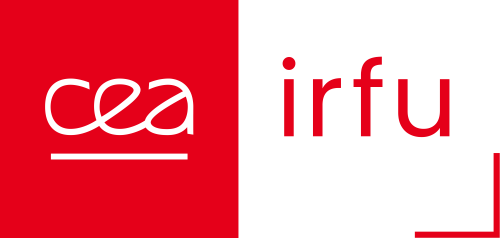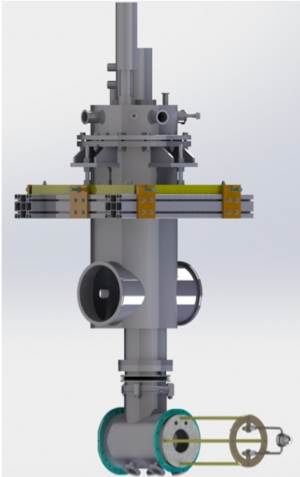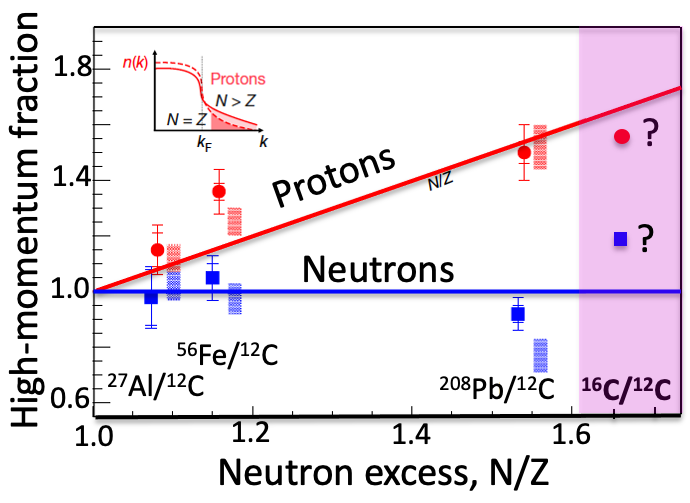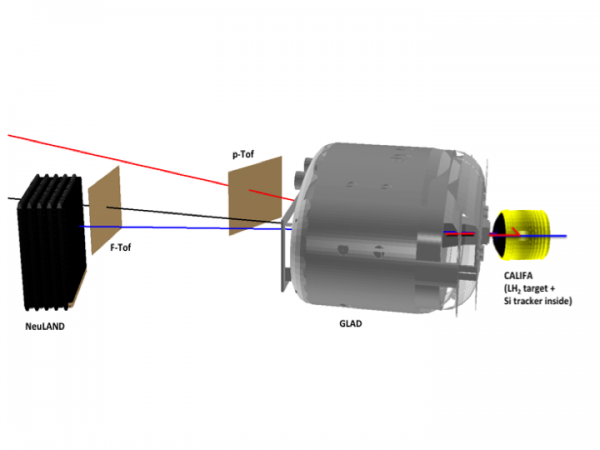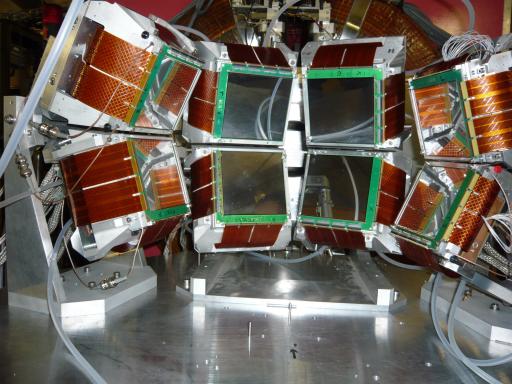Scientific challenges and project framework
The COCOTIER project (for short-range COrrelations and Isotopic spin at R3B - COrrélations à COurte porTée et spin IsotopiquE à R3B) aims at studying short-range correlations in exotic nuclei produced by fragmentation at the radioactive ion beam factory GSI and, later on, FAIR. Short-range correlations formed by the combination of the intermediate-range attraction with the short-range repulsive term of the nucleon-nucleon potential pairs nucleons in a very compact spatial configuration (1-1.5 fm) with a large relative momentum. That is the reason why those correlations may provide a way to probe in the laboratory the short-range part of the nucleon-nucleon interaction.
Those correlations were studied only in the region of the stable nuclei with values of the asymetry ratio between neutron and proton numbers (N/Z) close to 1 (N/Z~1-1.5). Those studies were mainly carried out with a series of experiments done at the electron accelerator of Jefferson Lab, JLab (United States). These measurements are limited to stable nuclei, and they were obtained with a low statistics. The objective of the COCOTIER project is to overcome these two limitations by performing measurements at high luminosity in inverse kinematics. The study of the short-range correlations in 16C (and 12C as a reference) will be the goal of the first experiment at the R3B facility, scheduled in May 2022.
Technical details
For the study of these correlations, we use the mechanism of quasi free scattering in inverse kinematics: the exotic ion beam is sent on a proton target, and all the reaction products are subsequently detected. It is then possible to count the pair numbers, and to deduce the momentum of the nucleons forming the pair. To perform this experiment, a liquid Hydrogen target has beeen built at IRFU. It will be coupled to the R3B detection system. This system combines a trajectograph (Silicon tracker), the CALIFA calorimeter, the NeuLAND neutron detector, and the analysis system of the fragment residue and of the charged particles, which are emitted at forward angles and deviated by the magnetic field of GLAD, a very large acceptance dipolar magnet built at IRFU.
Project schedule
The COCOTIER project is funded with an ANR (project PI: IRFU, A. Corsi) starting from October 1st, 2017. The Liquid H2 target has been built at IRFU and installed at GSI end 2019. The first experiment with the COCOTIER target was performed in March 2022. Two other experiments, including the measurement of Short Range Correlations, were approved by the GSI Program Advisory Committee in 2020 and are currently planned for 2022.
Contact : IRFU, DPhN
• Structure of nuclear matter › Atomic nucleus
• Accelerators, Cryogenics and Magnetism Division (DACM) • The Nuclear Physics Division
• LCSE • LENA group - Structure of the Atomic Nuclei
• R3B
